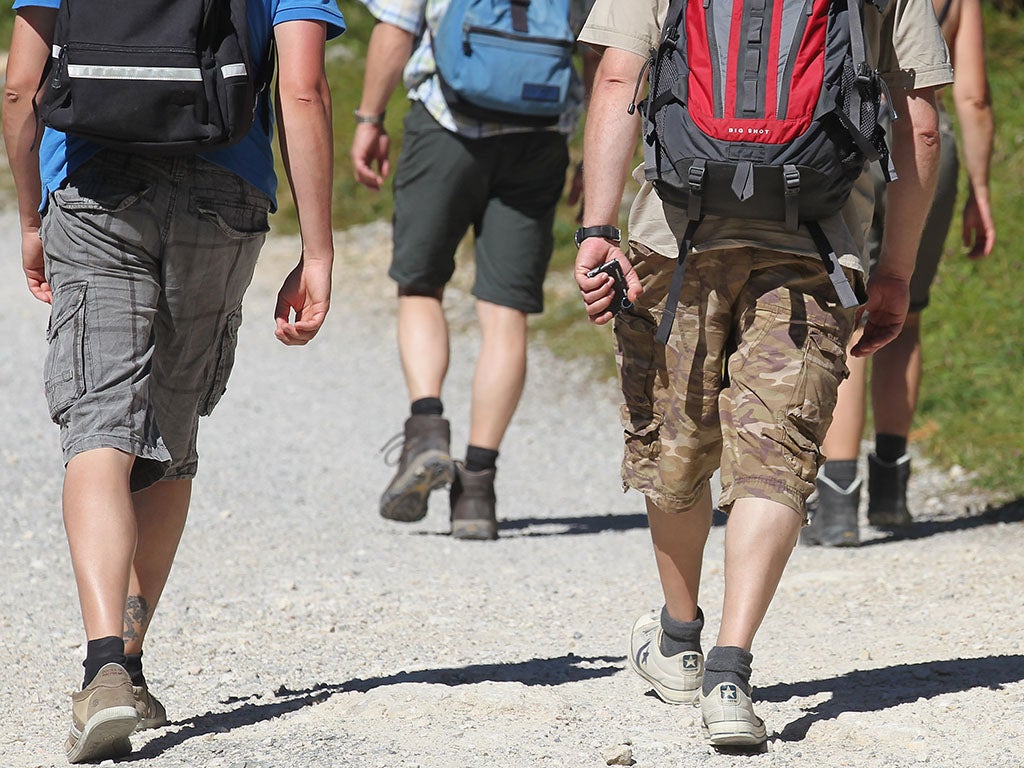Rambling revolution: How people power won the right to roam
This autumn marks the 10th anniversary of the move to open a million hectares of countryside for public use

Your support helps us to tell the story
From reproductive rights to climate change to Big Tech, The Independent is on the ground when the story is developing. Whether it's investigating the financials of Elon Musk's pro-Trump PAC or producing our latest documentary, 'The A Word', which shines a light on the American women fighting for reproductive rights, we know how important it is to parse out the facts from the messaging.
At such a critical moment in US history, we need reporters on the ground. Your donation allows us to keep sending journalists to speak to both sides of the story.
The Independent is trusted by Americans across the entire political spectrum. And unlike many other quality news outlets, we choose not to lock Americans out of our reporting and analysis with paywalls. We believe quality journalism should be available to everyone, paid for by those who can afford it.
Your support makes all the difference.In 1932, ramblers set out from Manchester and Sheffield to go for a walk. The upshot was five arrests, years of organised trespasses and a long battle for a very basic right – to go for walk.
It’s something we take for granted: escaping the bustle of towns and cities to get out in the countryside. Throughout the UK, we are blessed with stunning scenery and miles upon miles to explore. But, as recently as a decade ago, much of it was closed off to those living on its threshold.
This autumn marks the 10th anniversary of the move to open a million hectares of countryside for public use. In 2000, the Right to Roam campaign helped secure the Countryside and Rights of Way Act, with access land in the Peak District opening to the public in 2004. This gave us the right to walk over most mountains, moorland, heathland and down and common land.
Historically, the battle has taken on great significance, seen as a working-class revolution to regain land reserved by the wealthy for grouse shooting. Terry Howard, chairman of the Sheffield arm of Ramblers, says it meant a great deal. “Cities like Sheffield were the workshops of the country, full of hard-working people who just wanted to get out of the dirty, smoky towns for leisure. It was unacceptable that they couldn’t have fresh air, couldn’t just walk out into the countryside.”
The struggle can be traced back to 1884, and it reached a turning point at the 1932 Kinder Scout Trespass. Four hundred people defied the Duke of Devonshire to march to the highest point in the Peak District, clashing with gamekeepers. In 2007, Lord Roy Hattersley would refer to it as “the most successful direct action in British history”.
Howard came to be part of many successive trespasses. “We kept it low-key, there was never any trouble,” he says. “All we wanted was to make the point – we just wanted what we had been deprived of for 200 years. An army veteran told me how, before the war, he used to go out on to the moors training – and people regarded him as a hero. After the war, when he did the same thing, he was seen as the enemy.”
People now have the right to leave footpaths on open land for recreation or education. In England and Wales, three million hectares are marked by signage and on Ordnance Survey maps. In Scotland, the public has rights of access to most of the country’s land and water, including farmland where no crops have been sown. The change is staggering. For instance, before the Act, just four per cent of the Yorkshire Dales was open to the public. Now it stands at 64 per cent.
Howard is, of course, still walking with his Ramblers group, and has been glad to see a whole new generation get involved. “It’s important to keep people aware of where they came from. This has been a major achievement in my lifetime and it’s important that we don’t forget what we fought for.”
He may no longer be trespassing, but Howard insists the moors are never boring. “There is a drama to being out on the moors, whether it’s gloriously sunny or stormy,” he says. “Some say it’s like a spiritual experience, up there surrounded by silence – there’s nothing quite like it.”
For more information, visit ramblers.org.uk
Join our commenting forum
Join thought-provoking conversations, follow other Independent readers and see their replies
Comments